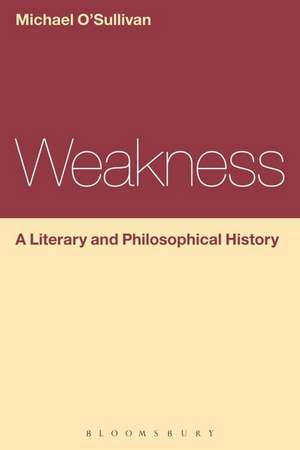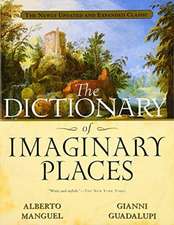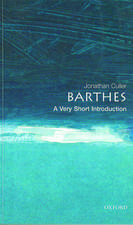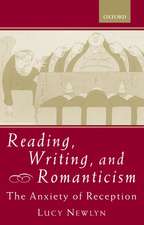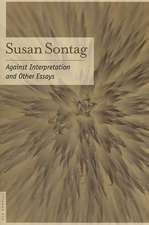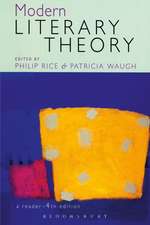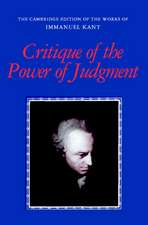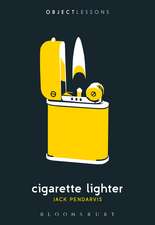Weakness: A Literary and Philosophical History
Autor Prof Michael O'Sullivanen Limba Engleză Paperback – 9 apr 2014
| Toate formatele și edițiile | Preț | Express |
|---|---|---|
| Paperback (1) | 256.67 lei 6-8 săpt. | +55.91 lei 7-13 zile |
| Bloomsbury Publishing – 9 apr 2014 | 256.67 lei 6-8 săpt. | +55.91 lei 7-13 zile |
| Hardback (1) | 773.30 lei 6-8 săpt. | |
| Bloomsbury Publishing – 23 mai 2012 | 773.30 lei 6-8 săpt. |
Preț: 256.67 lei
Preț vechi: 294.96 lei
-13% Nou
Puncte Express: 385
Preț estimativ în valută:
49.11€ • 51.42$ • 40.74£
49.11€ • 51.42$ • 40.74£
Carte tipărită la comandă
Livrare economică 09-23 aprilie
Livrare express 05-11 martie pentru 65.90 lei
Preluare comenzi: 021 569.72.76
Specificații
ISBN-13: 9781472568359
ISBN-10: 1472568354
Pagini: 224
Dimensiuni: 156 x 234 x 12 mm
Greutate: 0.32 kg
Editura: Bloomsbury Publishing
Colecția Bloomsbury Academic
Locul publicării:London, United Kingdom
ISBN-10: 1472568354
Pagini: 224
Dimensiuni: 156 x 234 x 12 mm
Greutate: 0.32 kg
Editura: Bloomsbury Publishing
Colecția Bloomsbury Academic
Locul publicării:London, United Kingdom
Caracteristici
Puts important Western and Chinese theorists in conversation around the notion of weakness.
Notă biografică
Michael O'Sullivan is Assistant Professor in English at The Chinese University of Hong Kong. He is author of Michel Henry: Incarnation, Barbarism and Belief (Peter Lang, 2006).
Cuprins
Introduction \ Part I: Philosophy \ 1. Akrasia and Fragile Goodness \ 2. The Flesh is Weak: Incarnating the Word \ 3. Daoism and Weakness: "Weakness is the means dao employs": \ 4. Nietzsche's Revaluation of Power - Kierkegaard's Despair of Weakness \ 5. Gender theory and weakness: is there a "weaker vessel"? \ 6. Why is Derrida's sign violent? Radical passivity and givenness \ Part II: Literature \ 7. Negative Capability and Romantic Indolence \ 8. Dickens and the "experience of the common" \ 9. Joyce's "Words of Silent Power" \ 10. Beckett and "The Authentic Weakness of Being" \ 11. Vulnerability and "the animal" in Coetzee \ Conclusion - Humane Weakness\ Bibliography \ Index
Recenzii
Although Western philosophy has generally appraised weakness negatively as a lack of power or a sign of moral failing, in this book Michael O'Sulllivan joins a number of contemporary thinkers (Ricoeur, Derrida, Agamben, Butler, and Nussbaum, among others) who in their own ways have offered a defense of passivity, vulnerability, and the precariousness of life. Through a wide-ranging exploration of the theme of weakness in philosophy, religion, and literature, O'Sullivan identifies a variety of treatments of this theme and ties them all together in the message that weakness is a core feature of our shared humanity. This book thus provides readers with a great starting point for anyone in the humanities who is in search of a new conceptual mapping of the human.
'Michael O'Sullivan's Weakness: A Literary and Philosophical History makes a significant contribution to scholarship by discussing a much neglected theme of the dialectic of weakness and showing its multifaceted complexity in innovative ways. It is a real tour de force in literary theory and criticism that relates to an impressive array of issues, ideas, and arguments, and offers much for students of literature, literary theory, and philosophy to reflect on and think through. An important book, and definitely worth reading.'
'Michael O'Sullivan's Weakness: A Literary and Philosophical History makes a significant contribution to scholarship by discussing a much neglected theme of the dialectic of weakness and showing its multifaceted complexity in innovative ways. It is a real tour de force in literary theory and criticism that relates to an impressive array of issues, ideas, and arguments, and offers much for students of literature, literary theory, and philosophy to reflect on and think through. An important book, and definitely worth reading.'
